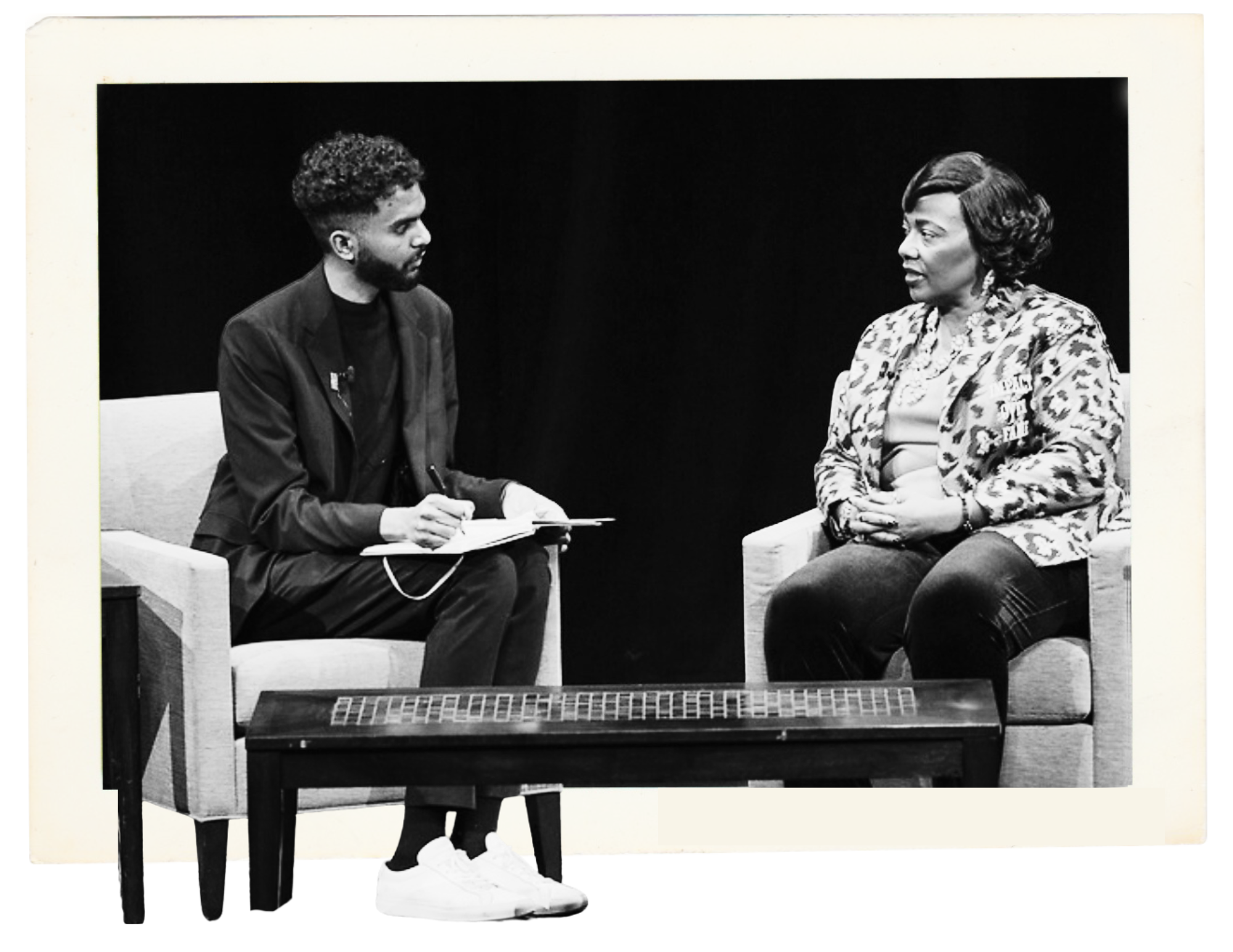Brandon A. Archer is a Philly-Born (Un)disciplined Arts Writer, Organizer, and Black Studies PhD Student.
"Who knows but that, on the lower frequencies, I speak for you?", Ralph Ellison, Invisible Man
—
"Who knows but that, on the lower frequencies, I speak for you?", Ralph Ellison, Invisible Man —
Brandon Archer (He/Him/His) is a Haitian-Trinidadian multi-method (un)inter-disciplined PhD student in the Department of African Diaspora Studies at UC Berkeley. He earned a B.A. from Swarthmore College with a double major in English Literature and a Specialized Major in Black Studies entitled “Visual Cultures and Literature of the African Diaspora”. His research engages questions of Black visuality, mourning, madness, and the aesthetics of embodiment.
Considering mourning as both an affective and political practice, he is in conversation with cultural producers who operate on frequencies outside Western cis-heteropatriarchal ontologies and who commune with the dead. Supported by his time as a Mellon Mays Fellow and a member of the 2024-2025 BES Arts Writing Incubator Cohort, his work has been recognized with the Philip M. Hicks Prize for Literary Criticism, and his recent essay is published in Issue 8 of the Black Embodiments Studio journal, “A Year in Black Art”.
Imagining a future in which we are free, his advocacy work and lived experience led him to co-found the Philadelphia Black Students’ Alliance in 2020, featured in the anthology How We Stay Free: Notes on a Black Uprising (Rogers, 2022), and serve as Executive Director of the Philadelphia-based organization UrbEd, Inc. and Bullhorn News. His efforts have contributed to the opening of an in-person youth space in Philadelphia, litigation efforts with the ACLU, almost half a million dollars raised for public school advocacy, and comprehensive reports on the regression of student activist’s rights and civic space with the Norwegian Students’ and Academics’ International Assistance Fund. Brandon’s tenure and work has been recognized by UrbEd, Inc. with the Brandon Archer Kujichagulia Scholarship, awarded each year to a Philadelphia Public School Student.
He manages events for a Black-owned, mission-driven creative workspace and events hub supporting Oakland’s arts community and entrepreneurial ecosystems.
Brandon is sustained by the intellectual traditions of his mother, Ralph Ellison, Elizabeth Alexander, Joseph Beam, Christina Sharpe, Sylvia Wynter, Kara Walker, Nick Cave, and Sun Ra—and by all those who indulge in illegibility.
Currently… reading James Baldwin or thinking about our Afro-futures.
Archer and Dr.Bernice King (2025) Photo via Laurence Kesterson
“Yet we are connected: his past is my present, our present a foundation for the future.”
— Brother to Brother, Joseph Beam and completed by Essex Hemphill
Sun Ra and the Arkestra in front of 5626 Morton St. in Philadelphia, By Veryl Oakland
“I am learning to fly, to levitate myself. No one is teaching me. I’m just learning on my own, little by little, dream lesson by dream lesson...I’ve had many lessons, and I’m better at flying than I used to be. I trust my ability more now, but I’m still afraid. I can’t quite control my directions yet.”
— Octavia E. Butler
Nina Simone and James Baldwin, Bernard Gotfryd (1924–2016), 1965
“Despite knowing otherwise, we are often disciplined into thinking through and along lines that reinscribe our own annihilation, reinforcing and reproducing what Sylvia Wynter (1994, 70) has called our ‘narratively condemned status.’ We must become undisciplined. The work we do requires new modes and methods of research and teaching; new ways of entering and leaving the archives of slavery, of undoing the ‘racial calculus and . . . political arithmetic that were entrenched centuries ago’ (Hartman 2008, 6) and that live into the present”.
— Christina Sharpe, In the Wake: On Blackness and Being, 13


